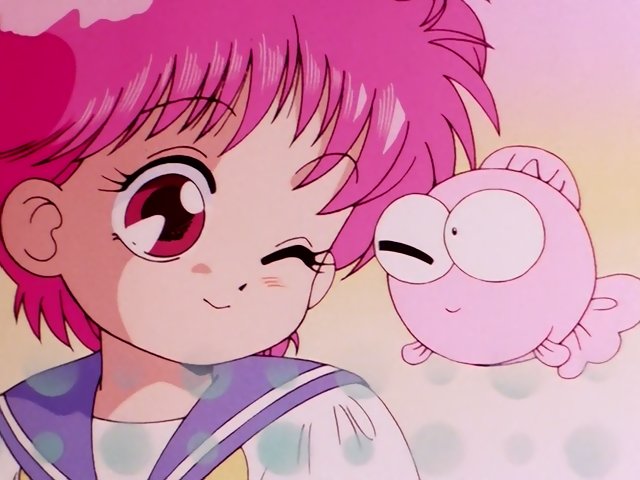
Goldfish Warning! (Kingyo Chūihō!)—abbreviated as Kinchū in Japanese, GfW in English—is an anime based on Nekobe Neko’s manga, first aired in 1991.

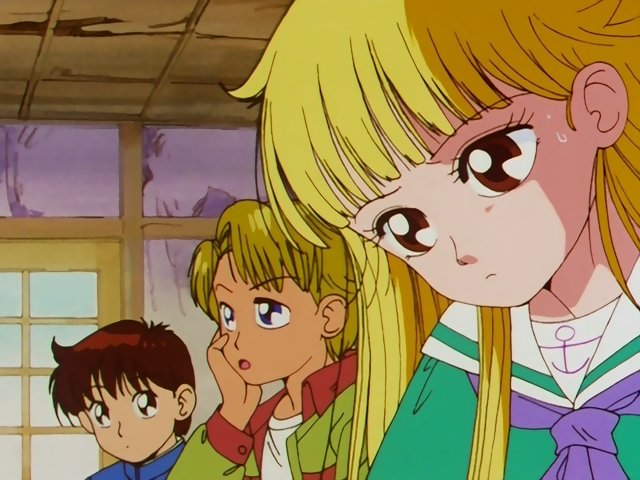
Animators who made Sailor Moon were most probably huge fans of Kingyo Chūihō; actually we can assume at least some of them were the same persons.
NOTE: Motoki = Andrew in the dub. (The Crown is the name of the arcade where he works.) [Updated, March 30, 2007 (thanks to mbncd)]
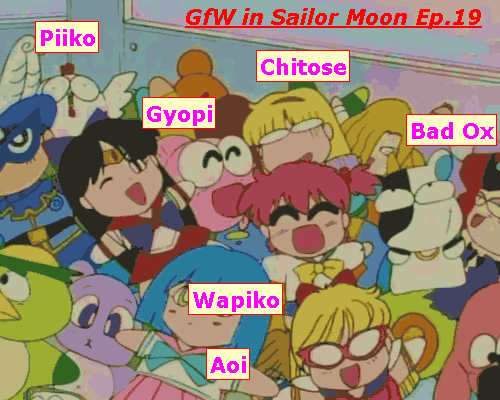
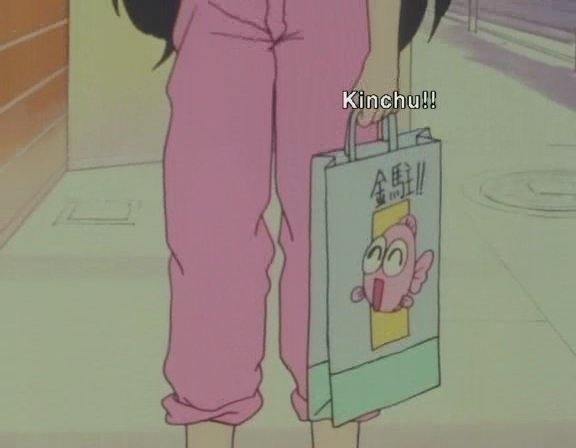
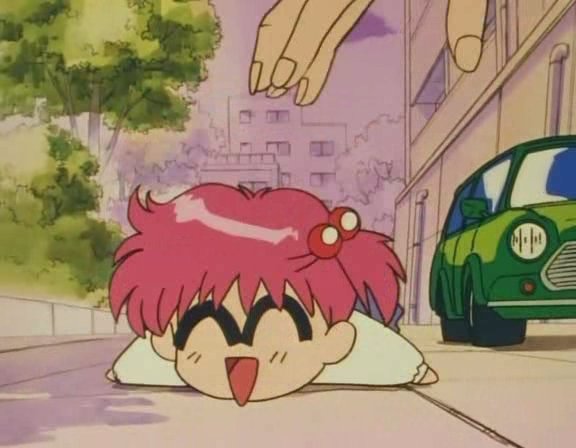
From Chō Kuse ni Narisō ep. 38 (1994)
![[Jpeg Image]](http://kinchuu.honobono.cc/images/chokuse38.jpg)
From Ah My Goddess! vol. 40 (2011)
![[PNG Image]](http://kinchuu.honobono.cc/images/gyopi_amg40_144.png)
Each of the main characters from Goldfish Warning! except Gyopi (Wapiko, Chitose, Aoi, Shuu, and Yurika) is drawn in 3 different, distinguishable modes: serious, half-gag, and gag. The animators who created GfW called them “A Type”, “B Type”, and “C Type.”
I'll explain the differences of the 3 modes, using Wapiko.
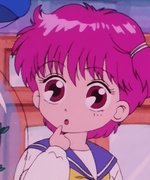
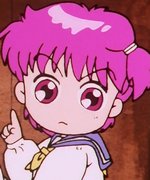
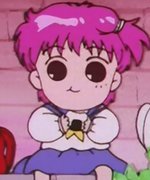
[ Read the full article with more pictures. ]


You can see the same “effects” in some other shows (for example, Misha and her rabbits from Pita-Ten), but GfW is older.


I did some google and noticed that some web pages have it as Kingyou Chūihō!.
The Japanese word for “goldfish” is kingyo with short ending o, not kingyou. So the original title is not Kingyou Chūihō! but Kingyo Chūihō! きんぎょ注意報!
Another thing...
Chūihō
For instance, in central Tokyo, if snowfall in 24 hours is 5 cm or more, there will be chūihō, and if snowfall in 24 hours is 20 cm or more (which is quite exceptional in Tokyo), there will be keihō. keihō is a warning—something dangerous is going to happen with a high probability. Chūihō is milder than that. As you can guess, a 5 cm snowfall is not likely to be anything very dangerous.
The English word warning means “a message informing of danger” or “cautionary advice about something imminent,” while chūihō doesn’t sound so dangerous nor imminent. In short, chūihō is milder and cuter than warning. While keihō would indicate a serious situation (no laughing matter), chūihō would indicate something unusual but not that serious, which could be exciting or thrilling after all.
Kingyo Chūihō doesn’t mean “Warning! This goldfish is dangerous!” The connotation is “Exciting! Fantastic! This is a super-goldfish!”
Technically, chūihō is not “warning.” But it’s probably impossible to find a better (natural and accurate) word than warning. Besides, this show is already well-known as “Goldfish Warning!” in the English speaking areas, and changing the already-known title would be confusing.
PS (Jan 13, 2020): “Goldfish Alert!” was suggested a bit after we had used “Goldfish Warning!” in 2005. More than 10 years later (2019), dubba wrote: “Kinda wish honobono went with "Goldfish Forecast!" for the series' translated name, though, as that name doesn't mislead the English reader, and is more technically correct.” One of the main reasons we decided to use “Goldfish Warning!” as the English title was, as stated above, the show was relatively well-known already back then as “Goldfish Warning!” Incidentally, as late as Episode 48, we have changed the translation of genki yohō from “mind-weather forecast” to “happiness forecast.” The reason why the strange expression “mind-weather forecast” was used in the first place was this: the original phrase genki yohō is a creative expression based on tenki yohō (“weather forecast”) and one could say, metaphorically, genki is “mind-weather.” The expression “happiness forecast” is less rigorous, but hopefully it works better. Since honobono is a group of several people, each having their own opinion, sometimes it is difficult to make a decision between two (or more) options. For example, the translator originally wanted to render “harō (HELLO)” in the original Japanese line as bonjour in English subs, which would have been an acceptable option, but in the end we refrained from being creative.
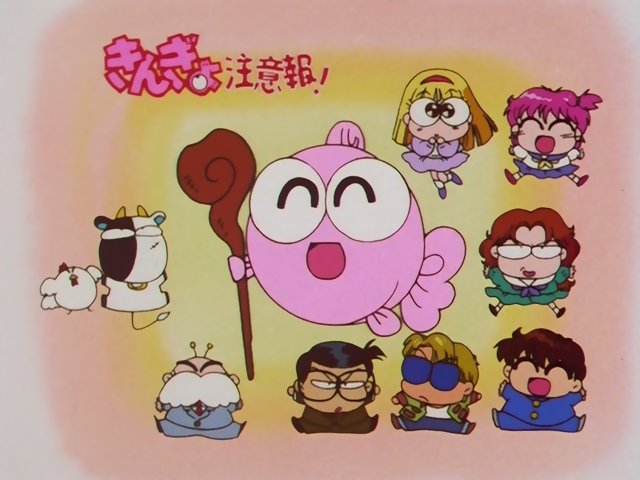
 Annexes
Annexes
821C DADD 2C25 C86C 1754 6412 DD33 0238 68B5 8C64]![]() Our website is Tor-friendly & JavaScript-free.
Our website is Tor-friendly & JavaScript-free.